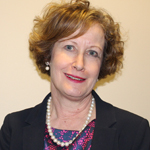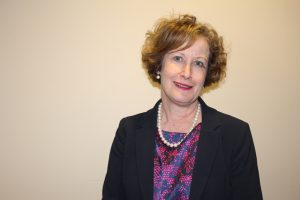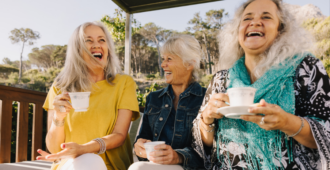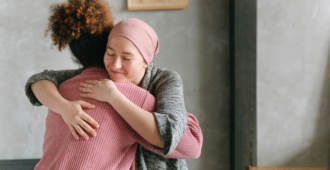

The value of psychosocial care in oncology is in many ways”immeasurable”, Professor Jane Turner told a recent HARC Forum in Sydney.
Professor Turner, a psychiatrist with the School of Medicine at the University of Queensland who has worked in the field of psycho-oncology for more than two decades, outlined the challenges of demonstrating the value of what is often seen as a “soft science” because it does not translate easily into traditional metrics.
She told the forum, which was hosted by Cancer Institute NSW, that Australia had led the way in terms of recognising the need for psychosocial care in oncology, with the National Breast Cancer Centre developing the first clinical guidelines for such care over a decade ago and and the consumer booklet, “Cancer: How are you travelling“, being Cancer Australia’s most downloaded resource.
Psychological distress common
Studies showed that depression, anxiety, psychological distress and fear of recurrence were common among people living with cancer, she said, with a review showing that 20% of patients experienced depression, increasing to 30% when adjustment disorder was included.
Professor Turner said while there was strong evidence to demonstrate the cost benefits of treating depression and anxiety in non-cancer populations, the economic evaluation of interventions to treat such symptoms among people with cancer was only just starting to emerge.
She outlined the findings of a number of international studies in which interventions including nurse-led strategies to assess and follow-up the psychological health of cancer patients had resulted in outcomes including not only increased use of anti-depressant medication, but reductions in unscheduled appointments, reductions in patients seeking extra tests and investigations, and improved quality of life.
These findings suggested that psychosocial interventions were “incredibly cheap” when measured against the benefits and when compared to the cost of many new cancer drugs, or especially when compared with the money Australia spends in other areas – like sports stadiums, she said.
But Professor Turner said the use of narrative and qualitative data,which provided the best evidence of the benefits of psychosocial care in oncology, were not highly valued by the scientific community.
However, she said the benefits of the “therapist effect” – the one-on-one connection between patient and health professional – were clear.
“The connection is really important, and it is not only psychiatrists – it can be nurses, physios, occupational therapists [delivering such care],” she said. “But they cannot be expected to do this without training, and the question is, how do we capture the metrics to show it is successful? It’s very challenging.”
She highlighted an example of a patient with stage three cancer who was misusing alcohol, which was tearing his marriage apart. After a series of counselling sessions, he had agreed to seek help for his alcohol use – an outcome that would not only benefit his own health, but hopefully keep his family together.
“How do you measure that?” she asked.
The challenge of evaluation
“You might think that’s really a bit soft, but I think this really matters,” she said.
Quality psychosocial care was multi-faceted and complex, both to provide and to evaluate, she told the Forum.
“When you are talking about kindness and compassion, what is the Number Needed to Treat (NNT)?”
While there was no “easy fix”, Professor Turner suggested a first step towards better psychosocial care for cancer patients should be to provide all health professionals working with cancer patients with training in communication skills and techniques that had been shown to help patients, including empathetic acknowledgment, not prematurely reassuring patients when they raised concerns, and asking open questions.
She said: “On the ground, front-line staff need the tools to be comfortable asking people how they are doing, and to say: ‘I am concerned about you, would you consider seeing someone?'”
Find out more
- Find out more about the Hospital Alliance for Research Collaboration (HARC)
- Read about other HARC Forums





